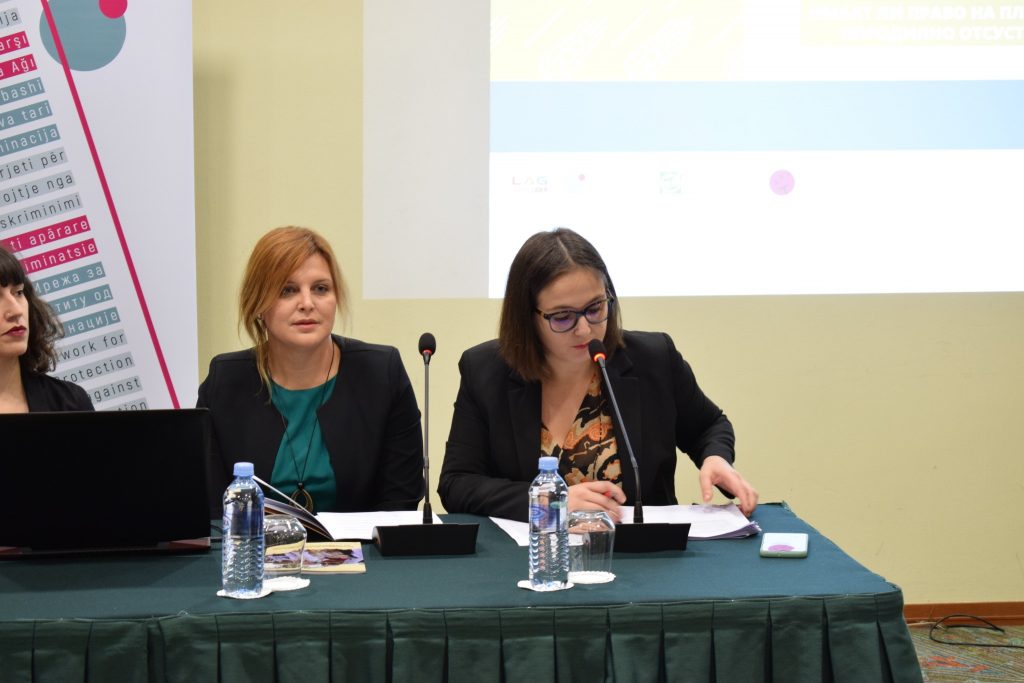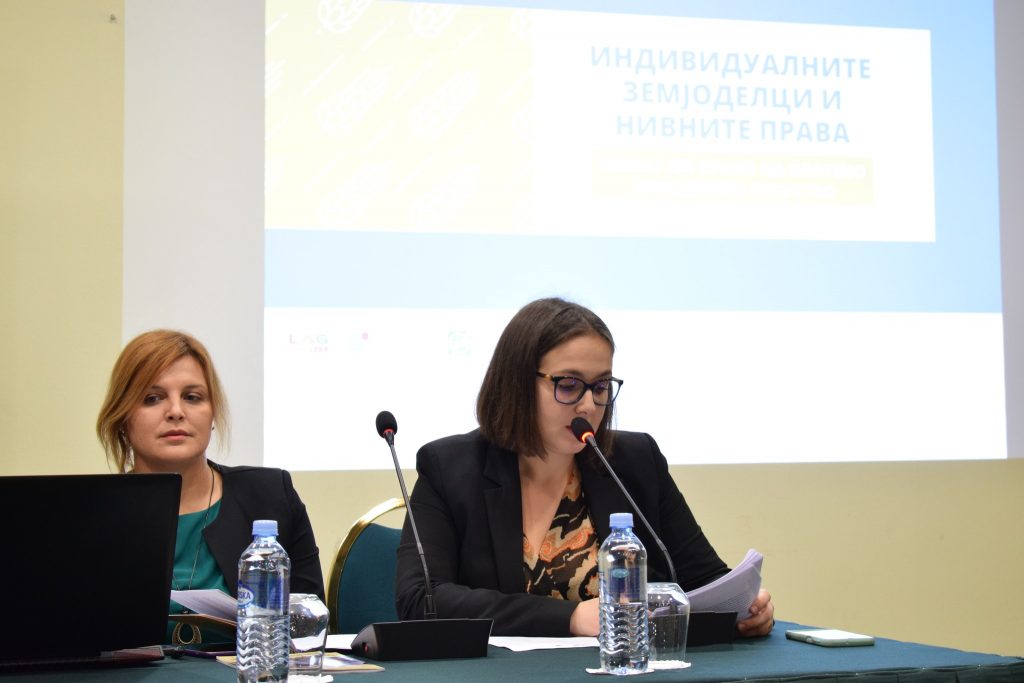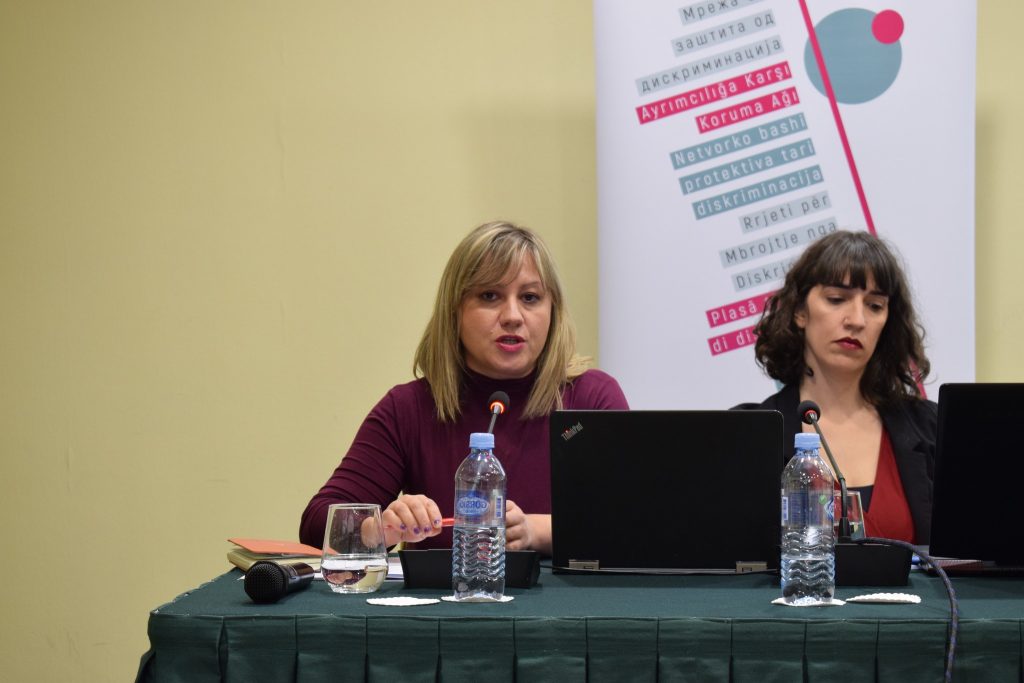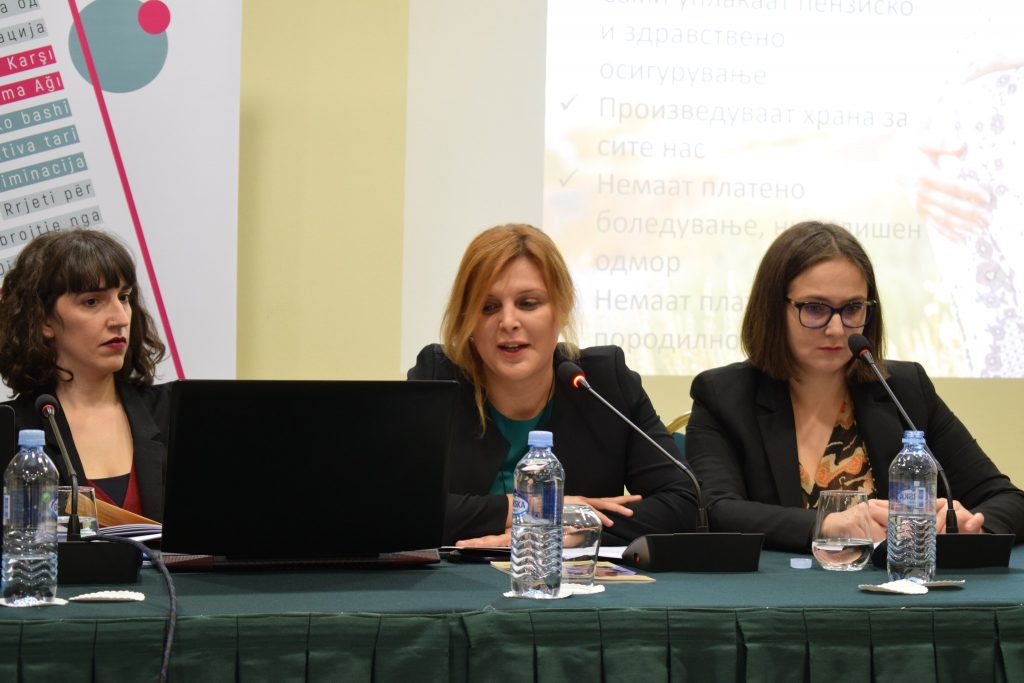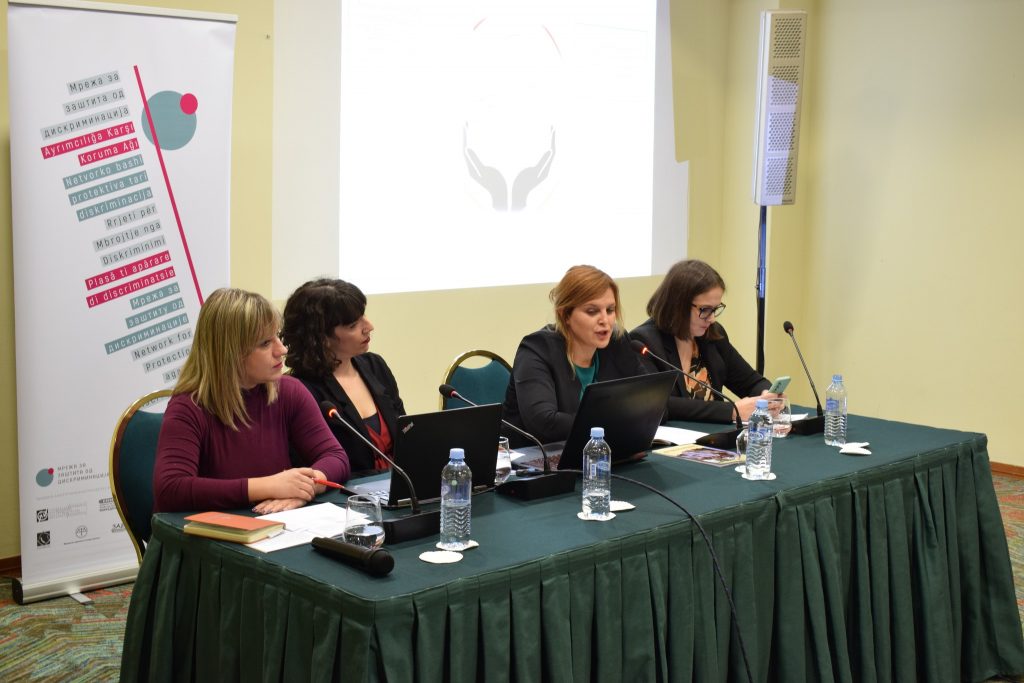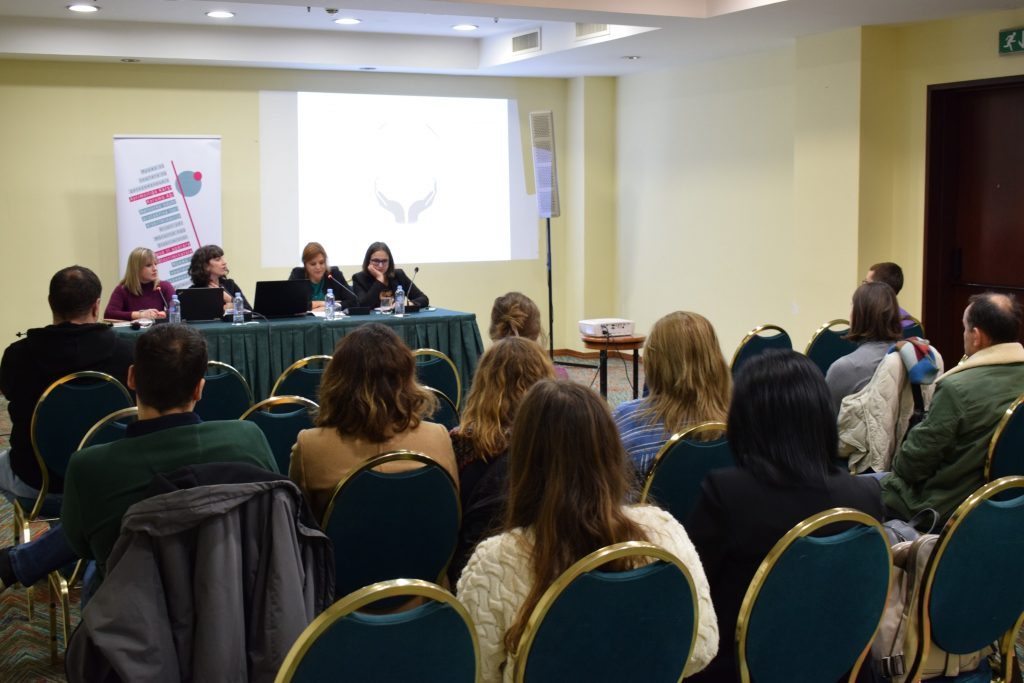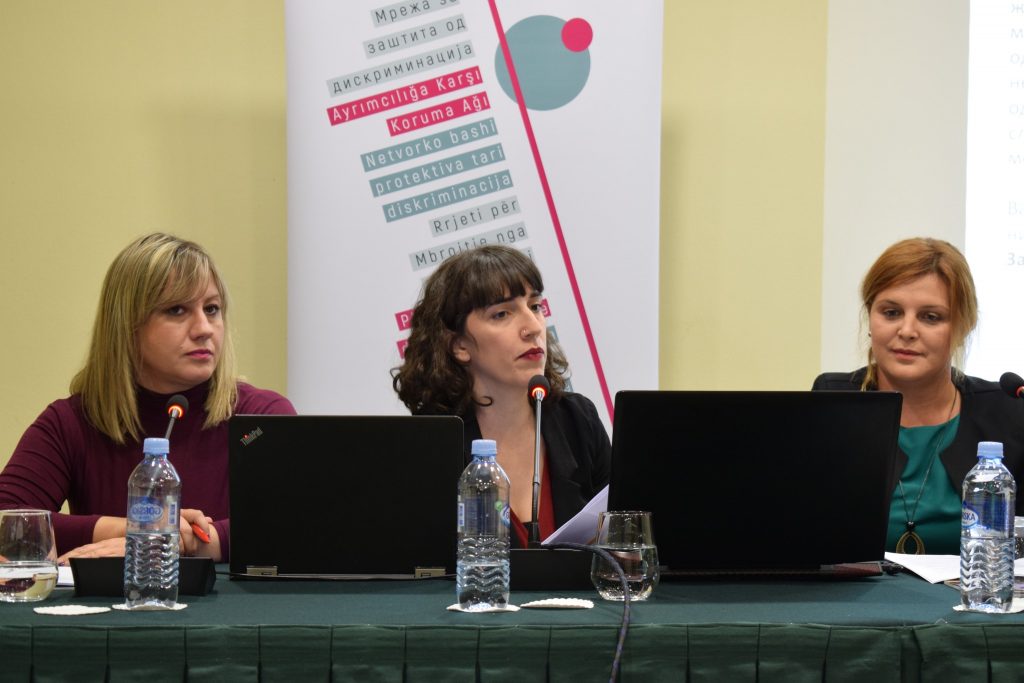On December 12, 2022, a press conference was held where LAG Agro Leader, the Open Society Foundation - Macedonia and the Network for Protection against Discrimination demanded a systemic solution for a paid maternity leave for women farmers. The appeal for amendments to the Law on Health Insurance was addressed to the Assembly of RNM, the Ministry of Health, the Ministry of Labor and Social Policy and the Ministry of Agriculture, Forestry and Water Economy.
Dragana Drndarevska from the Margini Coalition and representative of the Network for Protection from Discrimination stated that more than 70 associations, networks and alliances stand behind the request, many of which are organizations that act in the area of human rights protection and the rights of rural women. “Women farmers have neither the right to paid maternity leave nor the right to sick leave. This inhumane policy disproportionately affects the life and health of rural women, especially considering that this group of workers is poverty-stricken, has difficult access to healthcare, education and social services, lives in rural areas where the confines of patriarchy are still strong, which means that they bear the brunt of the work that involves caring for the home, the children and the elderly, while at the same time they also do heavy agricultural work in order to support themselves and their families.ѐ On the one hand, these women workers are essential, they produce the food we eat, on the other hand, our society does not provide them with the most essential social and labor rights in return, such as maternity leave, annual leave and sick leave. The constitutional provision according to which the state explicitly protects motherhood and children does not apply to rural women, so the opportunity to take a break from work in order to devote oneself to caring for a newborn becomes a privilege, not a right."
Liliana Jonevski from the Rural Coalition stated that most of the agricultural holdings have an annual income of up to 2000 euros, which means that most of the farmers live in poverty or depend on the income of other family members. According to their research, an insignificant number of female farmers (9) have used paid maternity leave, on some other grounds.
"The fact that they do not have the right to paid maternity leave means that they cannot stop working after giving birth to devote themselves to caring for the newborns, because they will lose their already low and precarious income from agricultural activity. These circumstances negatively affect the health of mothers and children from rural areas and result in unwanted abortions, increased risk of irregular pregnancies, premature termination of breastfeeding and an inability to provide adequate care for newborns, which leads to mental and physical health disorders", , said Marina Tosheska from LAG Agro Leader.
The associations prepared a Draft Law amending the Law on Health Insurance demanding changes in several articles. Jovana Jovanovska-Kanurkova from the Helsinki Committee for Human Rights added that: “What we demand are changes with which the basis for calculation and the amount of compensation would not be below the minimum wage for the previous year, i.e. MKD 18,000, and the duration of the maternity leave would be 9 or 15 months, as it is for all other workers.We believe that this is the minimum acceptable amount because women farmers must be able to support themselves and their families with the money from the maternity leave. The International standards also impose the notion of a decent amount as an obligation that the Republic of North Macedonia has undertaken”.
Tosheska explained that the proposed solution would not have major financial implications. "If we take into account the total number of women registered as individual farmers as a guideline, which is 1,075, the maximum financial cost in case 1/4 of these women are able to get pregnant and give birth in one year, according to the proposed model, would be MKD 58,104,000, and if a scenario is prepared based on the real number of users according to the number of rights granted to 1,000 insured persons, based on the highest value of this indicator for 2021, then the financial implications would amount to MKD 10,368,000".
The civil society organizations explained that in despite their demands, due to the lack of political will for a systemic solution, the Ministry of Agriculture plans to solve the problem through a program that would allocate funds to women farmers. According to them, this is not an acceptable solution because it is inexpedient, and it would not lead to actual enjoyment of the right to paid maternity leave in practice. “A program needs to be adopted every year, some of the ministers might adopt it, others might not, there may not be sufficient funds to allocate to everyone who is eligible, the program may not be administered, there may be delays in the payment just like there are delays in the payment of subsidies. As instruments, programs are more vulnerable to political influences and the will of the competent minister. Consequently, the Ministry of Agriculture may provide funds to women farmers who have given birth as an additional assistance, but this does not fulfill the right to a paid maternity leave. Moreover, the adoption of this program would only lead to a delay in the in the adoption of a systemic solution, and women farmers will end up not having the right to a paid maternity leave in practice”– Drndarevska emphasized.
The publication “Individual farmers and their rights – are they eligible to a paid maternity leave” was launched the event, and it is available in electronic format at the following link.
Contact person:
Marina Tosheska 078 393 900; Jovana Jovanovska Kanurkova 071 888 167
